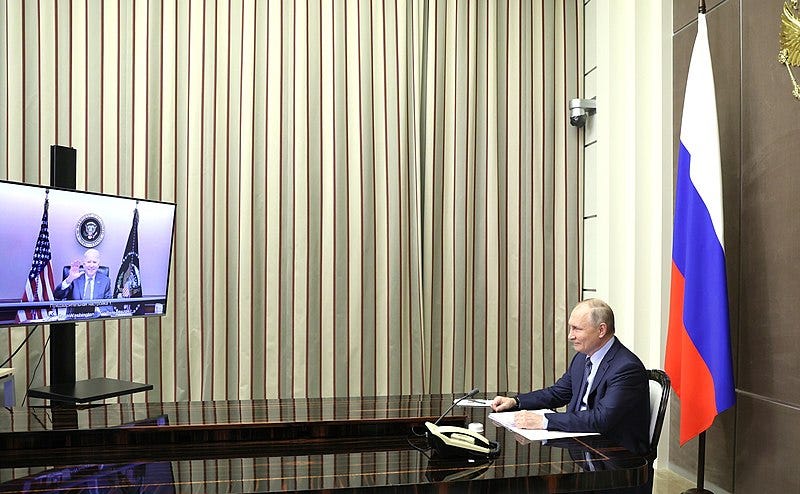Discussions, Dialogue or Negotiation?
Is it Possible to Deal With the Russian Regime?
President of Russia Vladimir Putin meeting with US President Joseph Biden (via videoconference)., December 7, 2021. Source: www.kremlin.ru
In diplomatic language, to designate exchanges between two opposing parties, the terms “discussion”, “dialogue” or “negotiation” are regularly used, or more indiscriminately, “talks” or, more vaguely, “exchange of vie…


